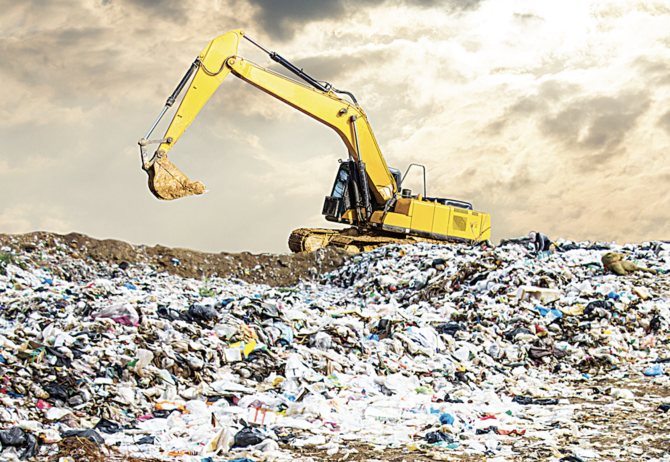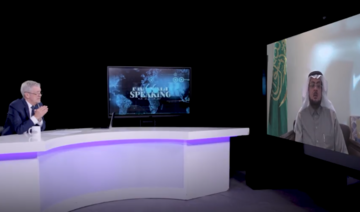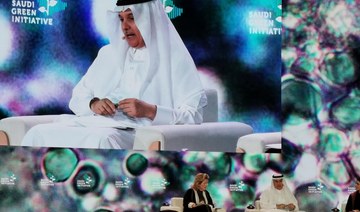JEDDAH: As is the case in many other parts of the world, a combination of population growth, urbanization and economic expansion has not only increased personal consumption across the Middle East but is also generating colossal amounts of waste.
Five Gulf Cooperation Council countries — Bahrain, Saudi Arabia, the UAE, Qatar and Kuwait — rank in the top 10 worldwide in terms of per capita generation of solid waste.
Thanks to their oil wealth, consumer spending in these countries has grown over recent decades to become a key driver of domestic economies. But as in many advanced countries, a culture of consumerism has created mountains of trash, most of the content of which is nonbiodegradable and extremely harmful to the environment.
Saudi Arabia alone produces about 15 million tons of garbage a year, 95 percent of which ends up as landfill, polluting the soil and releasing greenhouse gases, including methane, into the atmosphere for decades.
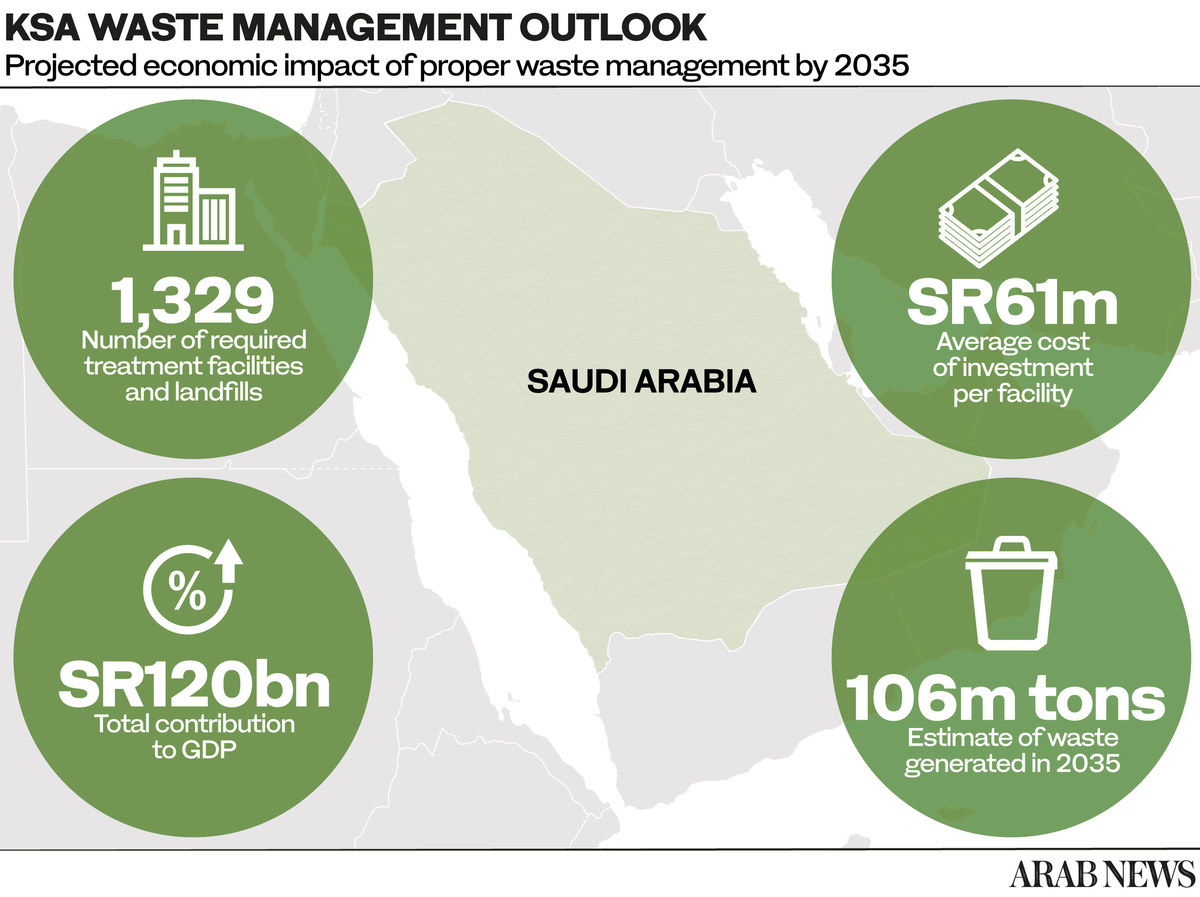
What is not buried often ends up as litter on city streets, in the form of discarded polythene bags, fast-food containers, plastic bottles and empty soda cans.
Between the start of 2020 and the first half of 2021, Saudi Arabia recycled only 5 percent of its total waste, including plastic, metal and paper.
To reduce waste generation, protect fragile ecosystems and make the most of reusable materials, Saudi Arabia can rely on the “circular economy” concept, a closed-loop system that involves the 3-R approach: Reduce, reuse and recycle.
The leading agent of change in this effort is the Saudi Investment Recycling Company, which was established in 2017 as a wholly owned subsidiary of the Public Investment Fund.
FASTFACTS
* Plastic takes more than 400 years to degrade.
* Only 12 percent of plastic is incinerated worldwide.
SIRC seeks to divert 85 percent of hazardous industrial waste, 100 percent of solid waste, and 60 percent of construction and demolition waste away from landfills by 2035. The only types of waste not covered by its remit is that created by the military and nuclear energy, both of which are handled by specialist organizations.
The circular economy model opens up huge opportunities, whether in terms of products, energy creation or services, which can make a major contribution to the diversification of the Saudi economy away from oil and its derivatives, in line with the aims of the Kingdom’s Vision 2030 reforms strategy.
Saudi Arabia aims to invest almost SR24 billion ($6.4 billion) in the recycling of waste by 2035 as it attempts to switch to a more sustainable waste-management system. It will invest about SR1.3 billion in construction and demolition waste, and about SR900 million in industrial waste. Investments in municipal solid waste will exceed SR20 billion, while investments in other types of waste will amount to more than SR1.6 billion.
There are several ways to create value in a circular economy. One of them is “waste-to-energy,” which involves drying and incinerating garbage, raw sewage and industrial sludge to power steam turbines.
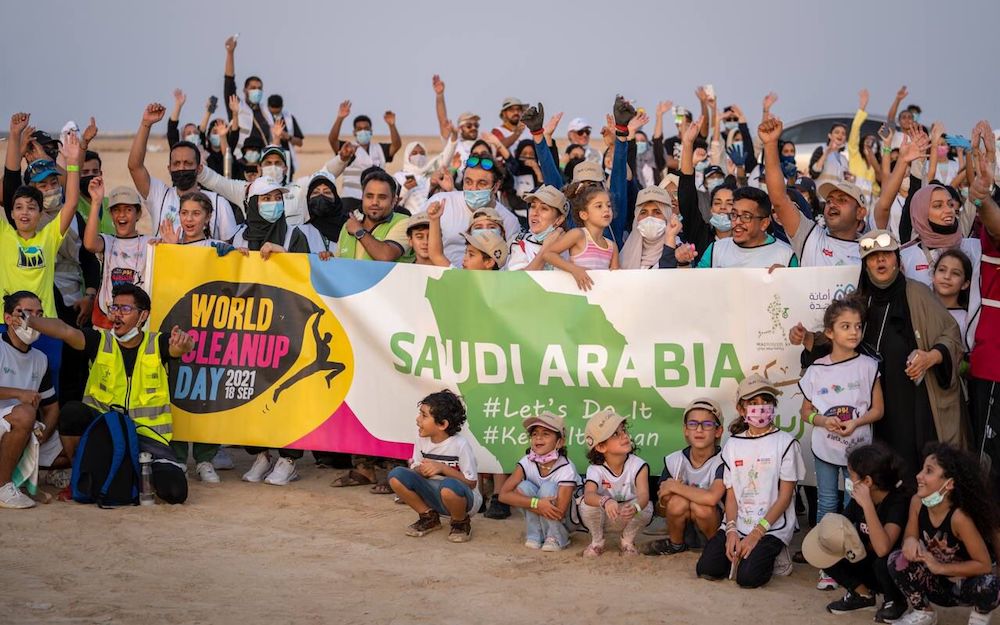
Volunteers in Saudi Arabia removing waste from beaches to stop its flow back to the waters. (Supplied/World Clean Up Day)
Burning waste produces carbon dioxide but leaving it to decompose in landfill sites results in 20 to 40 times the amount of greenhouse-gas emissions, in the form of methane, over a period of many years.
Unsurprisingly, the circular economy approach is catching on. In 2020, when Saudi Arabia held the presidency of the G20, the Kingdom proposed to allies the concept of a circular carbon economy as a means of mitigating the accumulation of carbon in the atmosphere.
But a circular economy model cannot succeed without the active involvement of big companies, small-business entrepreneurs and the general public.
Experts say that the construction of recycling facilities in the Kingdom is only part of the solution; it must go hand in hand with efforts to instill in the Saudi population a culture of household recycling and responsible consumption.
“We have to invest in the infrastructure but, equally, we have to provide education and create outreach programs,” Ziyad Al-Shiha, the CEO of SIRC, told Arab News in October. “Once we achieve 25-35 percent recycling, we can say to the public: ‘Look, this is your effort and this is the result that we’re bringing back to you.’”
TIMELINE OF SAUDI ENVIRONMENTAL PROGRESS
2016: Launch of Saudi Vision 2030.
2017: National Renewable Energy Program announced.

2018: Launch of the National Environment Strategy.
2019: Saudi Arabia joins International Solar Alliance.
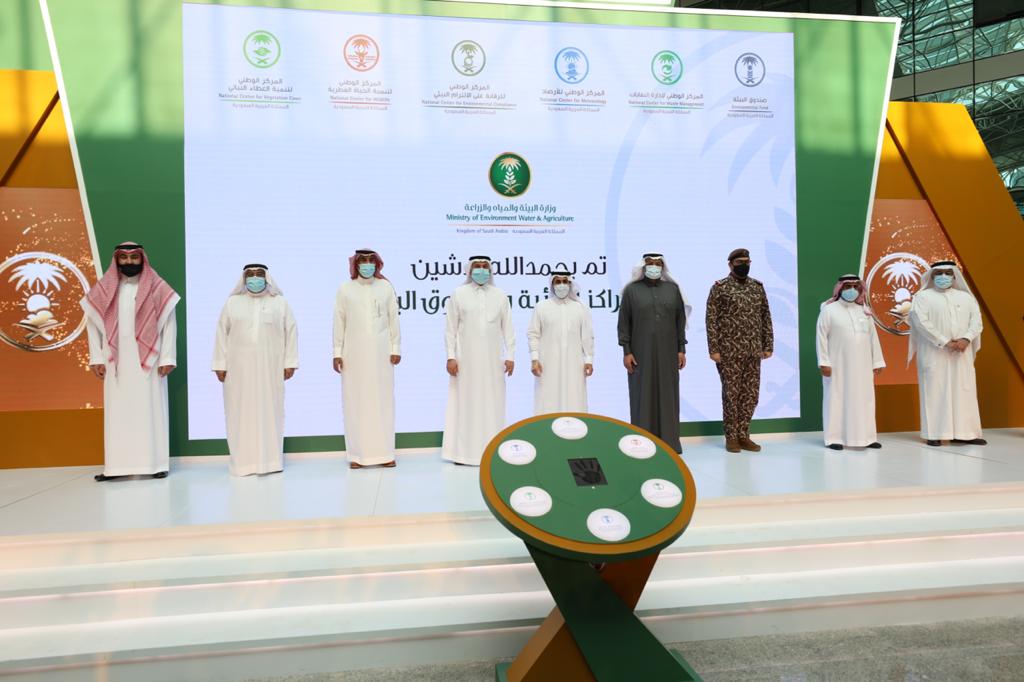
2020: Launch of Environmental Fund.
March 27, 2021: Launch of Saudi Green Initiative and Middle East Green Initiative.
Sept. 16, 2021: Farasan Islands added to UNESCO World Network of Biosphere Reserves.
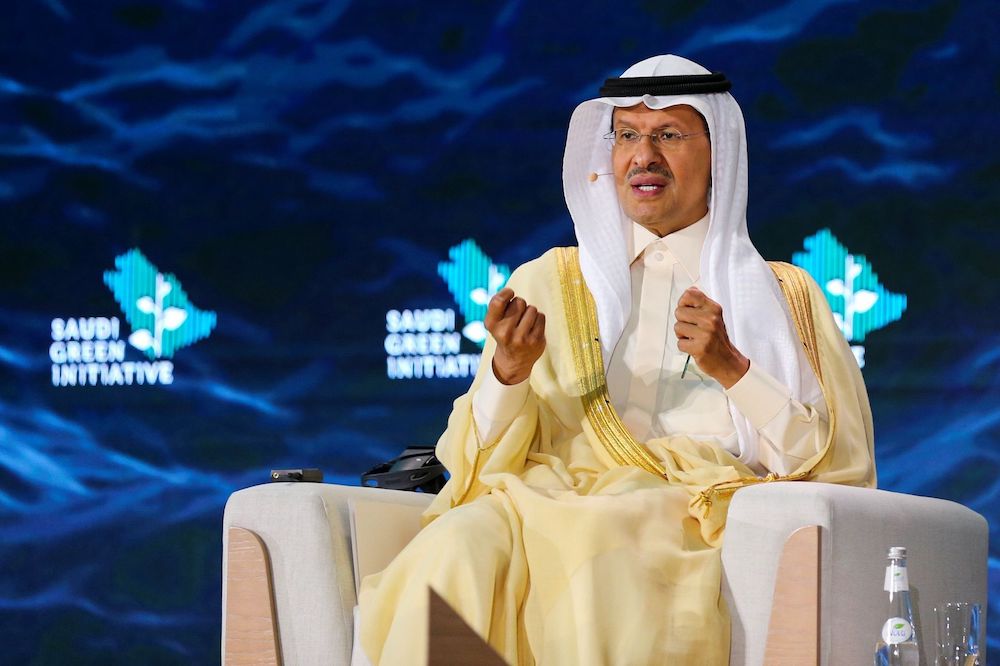
Oct. 23, 2021: Saudi Arabia announces goal of Net Zero greenhouse-gas emissions by 2060.
Oct. 23, 2021: Saudi Arabia joins Global Methane Pledge.
Progress has already been made in fostering environmentally conscious behavior at the community level. Saudi highways are better maintained now than before. Even in cities, drains are no longer clogged with cigarette butts, tissue paper, paper cups and discarded food packaging.
In part, such improvements are as a result of the introduction of penalties; the Ministry of Municipal and Rural Affairs and Housing can now impose fines of $133 on anyone caught littering or spitting in a public place.
But concern about the environment and public interest in recycling and reducing household waste have also increased markedly, thanks to campaigns conducted by civil society groups.
One such group, Mawakeb Alajer, has worked for 17 years to encourage community-level recycling in Jeddah by providing sorting facilities where the public can drop off a wide range of recyclables, from scrap paper and waste plastic to unwanted furniture and even old wedding dresses.
“As a second-hand shop, we encourage people to give away what they don’t need to charity, which helps protect the environment by reducing waste,” Sara Alfadl, a spokesperson for Mawakeb Alajer, told Arab News.
“We believe that everyone plays a part in the community and we’re providing a service everyone can benefit from. We sort out everything we receive. This takes a lot of time, requires a lot of manpower and is hard. Thankfully, most of the items we receive, whether clothes or recyclable waste, are in good condition.”
In cooperation with local businesses, truckloads of recyclable materials are brought to Mawakeb Alajer’s facility where they are sorted and then sold, donated, or sent to be reused, recycled or repurposed. In the process, the group is helping to gradually change public attitudes.
“Awareness is still in its infancy but spreading nonetheless,” Alfadl said.
Schools have begun to play an important part in shaping attitudes among the next generation, by adopting “environmental literacy” projects that give pupils the chance to learn by participating in school-based recycling schemes and science projects.
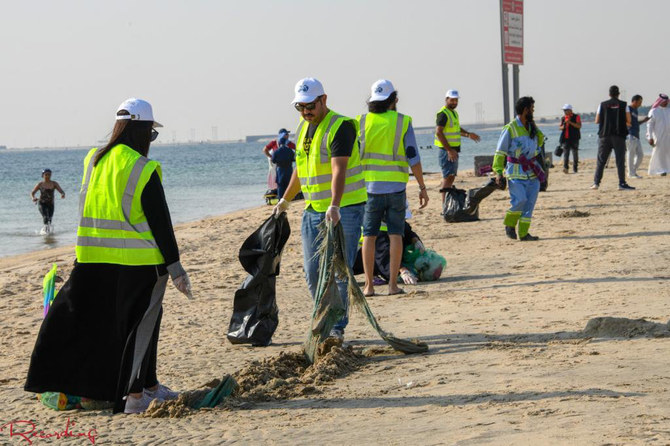
Saudi mayor honors British expat, Neil Walker, for 27 years of beach cleaning and who inspired creative environmental initiatives in Alkhobar. (Supplied)
For their part, many Saudi businesses are adjusting to the circular economy model, in line with the Kingdom’s pursuit of sustainable-development goals.
Mona Alothman, the co-founder of Naqaa, a local provider of business-to-business environmental-sustainability solutions, said that many companies are now integrating recycling and waste reduction into their business models.
“It’s not just a phase,” she told Arab News. “Many Saudi companies are adopting ingenious ways to reduce, reuse and recycle their office supplies and better manage their waste, among other things.
“A lot has changed in recent years. Regulations have become stricter in order to adhere to international standards. Our company’s core ethos revolves around sustainability, and recycling is one part of the picture.
“Companies today are not only applying our recommended solutions to office waste but also initiating campaigns to promote and encourage people to be more conscious of how they throw away their trash.”
This multi-pronged approach, encompassing education, charity schemes, stricter rules and penalties, is encouraging the Kingdom’s business establishments to adopt eco-friendly practices and communities to think more about the effects of lifestyle on the environment.
Alfadl and her colleagues at Mawakeb Alajer believe there is a lot that Saudis can do to encourage their employers, neighbors and local authorities to implement more environmentally responsible practices in homes and workplaces.
“I believe that recycling will pick up fast here in Saudi Arabia,” Alfadl said. “With growing awareness, what was once a project or short-term initiative has become a necessity.
“Our approach was always bottom-up. When employees join the sustainability drive with their actions, it won’t be long before others do the same and create a community of people who follow the same approach.”



